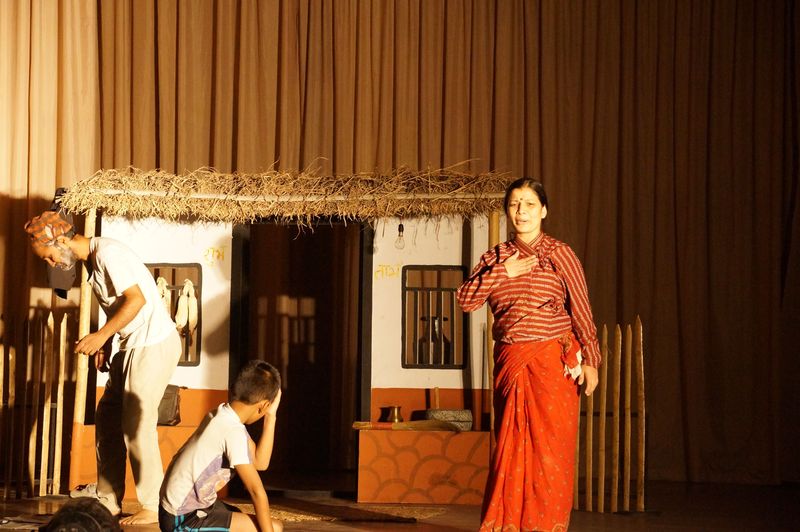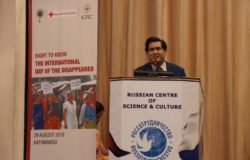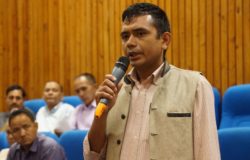Fifteen years have passed since Sharmila Tripathi began searching for her husband, Gyanendra. He went missing during the internal armed conflict in Nepal and is one of the 1,333 missing persons who are still unaccounted for. “With the passing days we aren’t growing any younger. The day is not very far when we would barely be able to walk longer distances,” said Sharmila. “When is our search going to end? When will we get the answers?”
The families of the missing continue to suffer immeasurable pain – ageing parents pray for their children’s return, wives live with the hope to see their husbands again and children long for their fathers.
About 80 family members of the missing came together to commemorate the International Day of the Disappeared in Kathmandu 29 August 2018 at an event organised by the International Committee of the Red Cross (ICRC), the Nepal Red Cross Society (NRCS) and the National Network of Families of Disappeared and Missing Nepal (NEFAD).
“Missing Persons in Nepal: Updated list 2018” – a joint publication of the ICRC and NRCS – was released on this occasion. Twelve years after the end of the decade-long internal armed conflict, the list still includes names of 1,333 persons who disappeared.

(L-R) Dev Ratna Dhakhwa, Secretary General, NRCS, Lokendra Mallick, Chairperson, CIEDP, Andre Paquet, Head of the ICRC Mission in Kathmandu and Ram Kumar Bhandari, President, NEFAD, unveiling ‘Missing Persons in Nepal: Updated list 2018’. (©ICRC)
The Ad Crew Drama Group performed a powerful play titled “The Waiting Eyes” – which moved the families as it resonated with their own lived experiences, full of ambiguity and anxiety.
The gathering was addressed by Lokendra Mallick, Chairperson, Commission of Investigation on Enforced Disappeared Persons (CIEDP), Ram Kumar Bhandari, President, NEFAD, Dev Ratna Dhakhwa, Secretary General, NRCS and Andre Paquet, Head of the ICRC Mission in Kathmandu.
Family members expressed concerns, doubts, anger and frustration. Questions on reparation, compensation, scholarships and employment opportunities for the families of missing persons were aired strongly. The family members did not hide their disappointment with the CIEDP.
Addressing their questions, CIEDP chairperson Lokendra Mallick said, “In absence of a proper law that criminalises enforced disappearance, the commission hasn’t been able to recommend any actions against those involved in such cases.” Reiterating the commission’s commitment to work for the families of the missing, he added, “I request the government to create a conducive environment that enables our commission to deliver as per its mandates.”
Expressing strong solidarity with all families of the missing persons, Andre Paquet, Head of the ICRC Mission in Kathmandu, hoped for a comprehensive closure to the Transitional Justice process in Nepal. “International humanitarian law requires that authorities take all feasible measures to account for the missing persons. In that respect, the States are obliged to do everything possible to provide families with answers on the fate of their loved ones,” he said.
Photos below capture the lively interaction at the event (©ICRC)
More on the families of the missing: Nepal: Ten Years after Armed Conflict, Mother Performs a Doll’s Funeral for Missing Child









